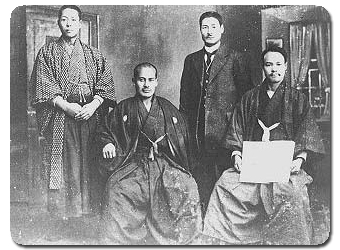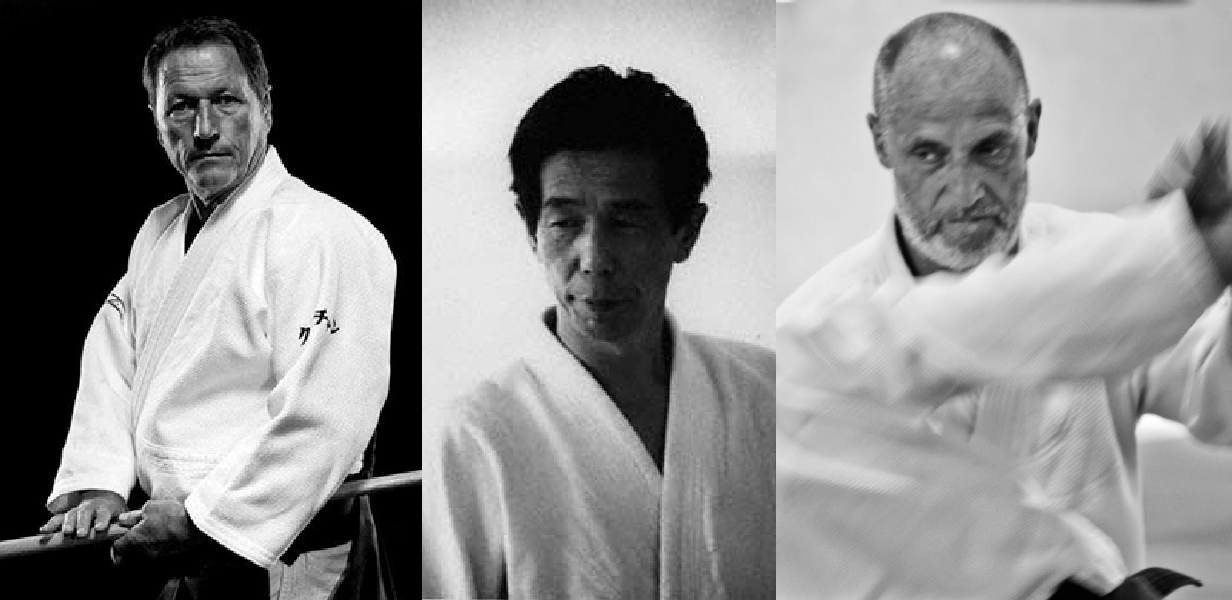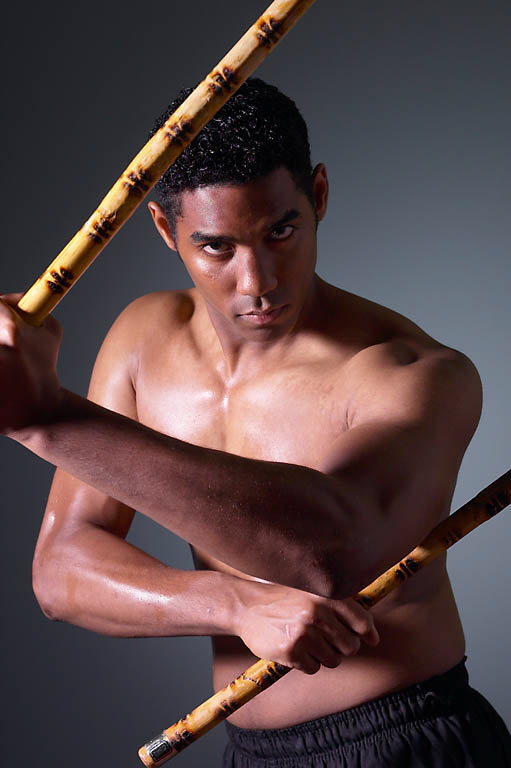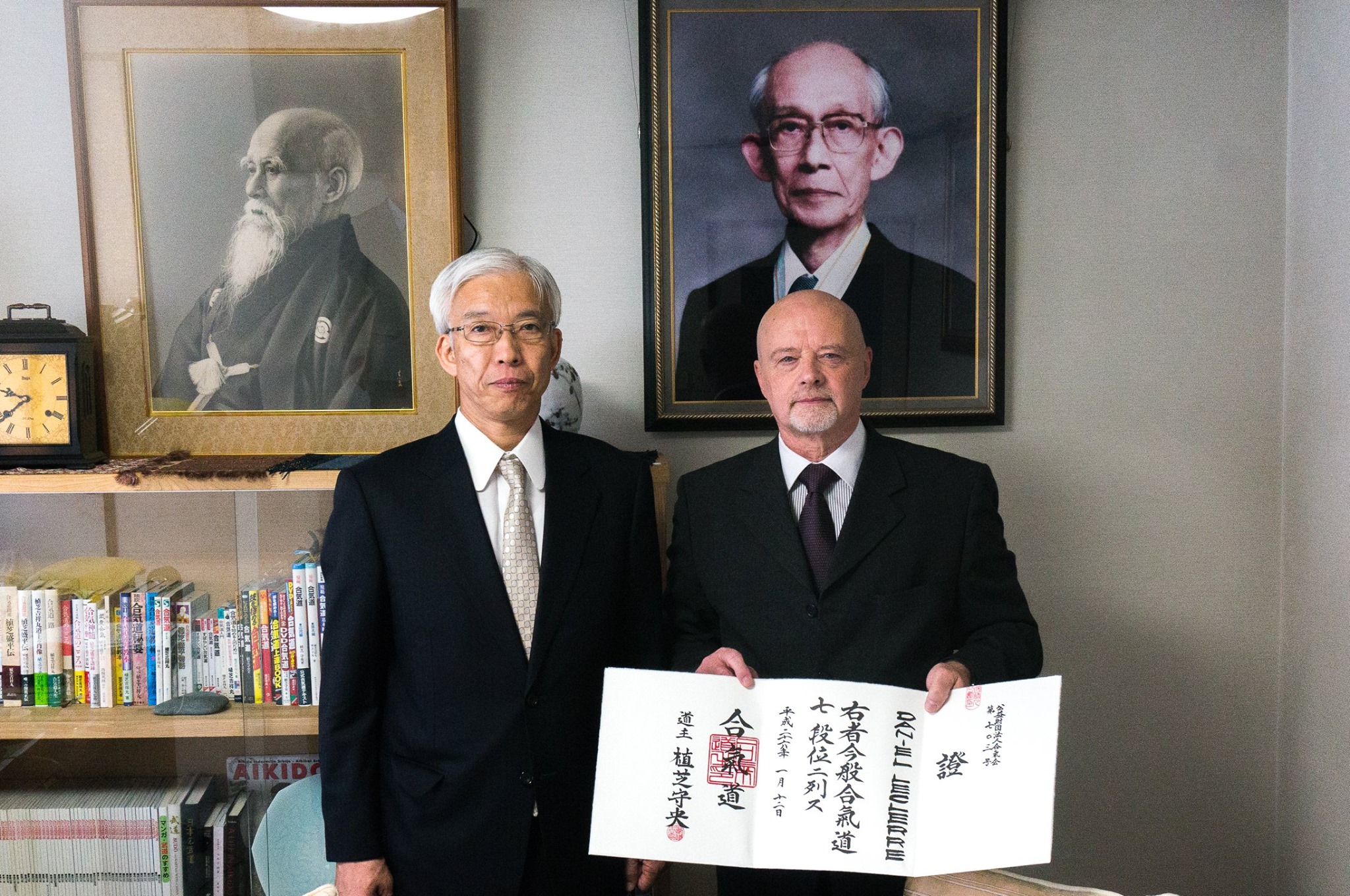
Japanese martial arts – properly speaking (I mean Budo, not Bujutsu) have been created as a means to self-improvement. The aikido founder clearly talked about a practice to shape honest and truthful people. Judo and karate, just to name the most famous, are no less. Probably, their involvement in combats and competitions, the prizes and the achievements affected the practitioners’ ego, which has been inflated instead of diminished. But aikido has no competitions, so the problem must be found elsewhere, since aikido is not certainly a discipline which is immune to attention-seeking behavior. Yet, one of the practice’s goals is exactly that: limit your ego.
A much developed ego distances ourselves from our true essence, while reaching it should be the ultimate goal of our practice. A true Budo master fights strongly to keep the student’s ego at bay. Unfortunately, in the very rare cases this really happens, the master (the true one) becomes a “bad guy”, a rude person, one who does not behave – and he is left alone. On the other hand, we can see a growing number of “masters” whose behavior is an example of vanity. Therefore, why should a newbie embrace such disciplines since they have distanced themselves so far from their founding principles?
Maybe the answer is in the world we live in. Today’s society is the society of appearance. The outer shiny cover is more important than what the real being is. Therefore, it may seem excusable to use any legitimate means to publicize our activity with pictures and videos on social platforms. In this way, our potential customers can be informed of the existence of our own Budo dojo. We know the founder Morihei Ueshiba himself shot some videos to illustrate his “divine techniques”. But today it is not easy to tell the “functional” advertisement from those prompted by attention-seeking, which is a shortcoming (as excessive ego in a Budo master is a big shortcoming!).
I remember a story about ancient Japan where an old karate master had to move in a new village where no one knew him at all. They assigned him a humble task, such as preparing tea. Hi did not protest by invoking his martial prowess, something he could have very simply proved. On the contrary, he accepted and humbly served tea to the village’s settlers. One day a traveller recognized him for the great karate master he really was and asked him to teach him. Now everybody could testify to the great ability of the old man. The word spread and his dojo became one of the most crowded in the area.
It is impossible to imagine something like this happening today. It is nonsense avoiding a minimum advertising campaign waiting for someone who will casually become aware of our existence. Word spreads through the Internet today and even I make use of all possible channels to publicize my dojo in the best way possible.
But where is the limit?
I’m convinced that the teaching of the old master’s story is that a Budo teacher must be humble. I’m not saying we should stay put and wait for someone to drop in and enroll in our dojo. But the old master of the story did not crave for letting the world know how good he was. This is a typical behavior of great people: they don’t feel the urge to tell the world.
Yet, the instant we obtain a reward we want to tell the world.
Why?
If I was looking for a dojo, I might probably be very interested in knowing the master’s curriculum vitae. In a really broad sense, we might think that a high rank, the experience, the number of students or black belts could be some of the reasons influencing our choice. If those information are not publicly available, our choice could fall on others. Therefore, advertising, publicizing our career, clarifying the teaching lineage and highlighting our credits seem to be perfectly legitimate; everything is done for the sake of the potential subscriber.
But that should be it. Where does the information campaign end and vanity begins?
I figure a Budo master mustn’t necessarily be handsome, good-looking and photogenic. I don’t find it a coherent behavior to advertise with shiny pictures and videos where we appear in sculptural poises like elegant or muscular athletes. Trying to look like invincible fighters to attract enrollments should be considered misleading. But probably I think so because I don’t come out well in video? Reality is hard…
In Budo, being big and strong, jump higher or running faster should have no sense at all.
But maybe the market is asking for that, so we comply.
Many great masters are spontaneously filmed and those videos spread around the Internet. I’m not talking about this, I’m talking about prepackaged videos or photos for advertising goals or for letting the world know how good we are. Same for those photos where we appear with the so yearned for ranking certificate we just clinched: we should remember that certain high rank certificates are purposedly formatted to be larger because they were originally meant to be folded (not framed) and humbly stored in private. This is not coherent with the work we should carry out in Budo, yet many great masters comply to this fashion allowing to be portrayed in pictures with the awarded student showing off the newly achieved rank. From the Doshu off…
What’s all this got to do with Budo? Nothing, but we shouldn’t demonize too much: any group or people aggregation is inevitably a sample representing our society – it contains everything. Since today’s society is what it is, the world of Budo simply mirrors it. But we should work to change all this, not to indulge in it…
And here I am, inflating my ego while I’m writing these words. There’s no way out…
“Keichu, the great Zen master of the Meiji era, was the head of Kofuku, a cathedral in Tokyo. One day, the governor of Kyoto went to visit him. His assistant introduced him by showing the governor’s ticket, which read: Kitagaki, Governor of Kyoto.
«I’ve got nothing to do with this man» Keichu said to the assistant. «Tell him to go away».
The assistant returned the ticket with many apologies. «It was my fault» the governor said, and with a pencil he crossed the words ‘Governor of Kyoto’. «Introduce me again to your master».
«Oh, it’s Kitagaki?» the master exclaimed when he read the ticket. «I want to see this man».”



